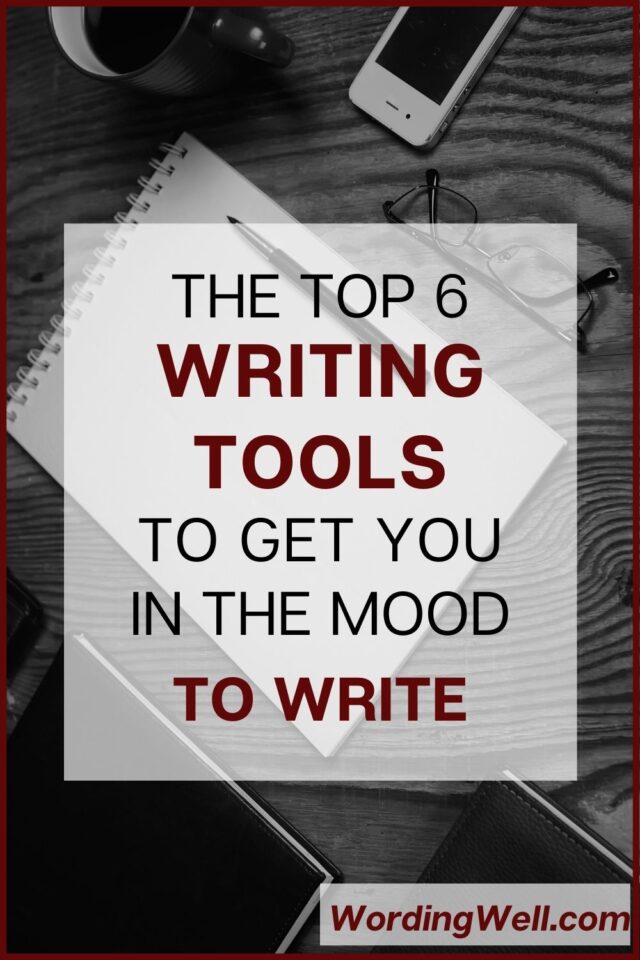
There are 4 essential writing tools that will help you reach your writing goals, whether you’re writing a book, an article, an essay, or publishing a blog post. These 4 tools are guaranteed to increase your effectiveness and your efficiency as a writer.
FYI, this post has been written by Dave Chesson (and edited by Lorraine Reguly, owner of Wording Well).
I’m not an advocate of using a tool for everything. I feel it’s possible to get almost everything you need taken care of as a writer using only the basic tools that come with your computer.
However, I’m a firm believer that a few carefully chosen tools can make a big difference. In some cases, as I’ll discuss, they can even help lower costs in the long run.
So, to help you potentially get the most out of these tools, I’m going to share with you my personal picks for writing that are truly worth your time. They’ve made a big difference to my writing life and I hope they help yours as well.
Essential Writing Tool #1: Specialist Writing Software
The first category of tool I’ll recommend is specialized writing software.
There’s nothing particularly wrong with Word or Google Docs… but, while these may be fine for casual writers, there are far more suitable options out there for serious writers. With the right tools, you can become more organized, track better, and get into the writer zone with greater ease.
Scrivener
Scrivener is my personal writing software, and it’s also favored by big-name bestselling authors such as Michael Hyatt.
Scrivener is absolutely packed full of features, so expect a slight learning curve if you’re using it for the first time. But once you know how to fully use it, it is incredible what you can do, and how you can organize your writing.
Some of the main reasons I personally favor Scrivener and why I recommend it so strongly include:
1: It is packed with everything you need to write a book, including fully integrated research, and the ability to visually storyboard your work.
2: It is complete with formatting capabilities and options to export into any e-book format.
3: It is customizable with access to a large list of Scrivener templates, allowing you to make Scrivener fit your writing style, genre, or purpose.
4: There is an app version for iOS. This is great for editing on the go.
5: Its excellent value – you can try Scrivener for a full 30 days for free, and then you can save even more money by using a Scrivener discount code to help lower the costs further.
6: Scrivener is always offering new versions and updates.
Scrivener takes some getting used to at first, but I wouldn’t want to write a book using anything else these days.
FYI, if you need a hand getting your book published, let Lorraine help you. She offers author assistant services via Wording Well!
yWriter
yWriter is a great example of software created by someone who truly needed it.
Frustrated by the options available to him while he was working on his own novels, the creator of yWriter decided to take matters into his own hands and create the software he needed to write his books.
yWriter is only available for PC, but if that’s you, it’s well worth checking out because:
1: The software is totally free to use despite having a lot of premium features.
2: It was created with fiction writers in mind, so yWwriter has the option to store data related to characters, scenes, and objects.
3: It is updated regularly with new features. yWriter is constantly being worked on, with new versions in beta mode at all times.
Overall, Ywriter isn’t as powerful and slick as Scrivener, but considering it’s free, it’s superb, making it a great option for Windows writers. Read More






